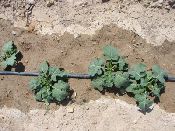The DESIRE research project is part of the European Union's on-going commitment to
European Commission FP 7 Cooperation Work Programme: Environment
To this end we have written a number of briefing and other documents as contributions to the debates at the Conferences of Parties (COP) and Committees for the Review of the Implementation of the Convention (CRIC).
|
|||||||||||||||||

Acknowledgement
The DESIRE project was
|
DESIRE brought together the expertise of
26 international research institutes
and non-governmental organisations.
This website does not necessarily
represent the opinion of the
European Commission. The European
Commission is not responsible for
any use that might be made of the
information contained herein. 
 Global level
Global level






